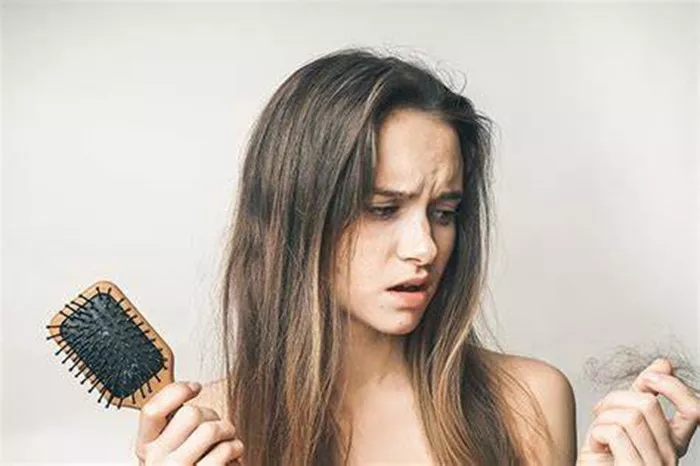Hair loss is a common concern affecting many individuals across the globe. While genetics, hormonal imbalances, and environmental factors can contribute to hair loss, a well-balanced diet plays a crucial role in maintaining healthy hair. Proper nutrition can strengthen hair follicles, improve scalp health, and reduce hair fall. This article explores the essential nutrients and dietary practices that can help in reducing hair fall.
Understanding Hair Loss
Hair loss can result from various factors including genetics, stress, hormonal changes, and inadequate nutrition. To address hair fall effectively, it is important to understand how nutrition impacts hair health. Hair growth requires a steady supply of essential nutrients that support the health of hair follicles and the scalp.
Essential Nutrients for Hair Health
Protein
Protein is the building block of hair. Hair strands are primarily composed of a protein called keratin. Adequate protein intake is crucial for hair growth and repair.
Sources of Protein:
Lean meats (chicken, turkey)
Fish (salmon, tuna)
Eggs
Dairy products (milk, cheese, yogurt)
Plant-based sources (lentils, chickpeas, tofu, quinoa)
Iron
Iron helps in carrying oxygen to the hair follicles, promoting healthy hair growth. Iron deficiency can lead to hair thinning and hair loss.
Sources of Iron:
Red meat (beef, lamb)
Poultry (chicken, turkey)
Fish (sardines, salmon)
Leafy greens (spinach, kale)
Beans and legumes (lentils, chickpeas)
Fortified cereals
Vitamin C
Vitamin C is essential for the absorption of iron from plant-based sources and helps in the production of collagen, which strengthens hair.
Sources of Vitamin C:
Citrus fruits (oranges, lemons, grapefruits)
Berries (strawberries, blueberries)
Kiwi
Bell peppers
Tomatoes
Omega-3 Fatty Acids
Omega-3 fatty acids nourish the hair and support scalp health. They help in reducing inflammation and promoting hair growth.
Sources of Omega-3 Fatty Acids:
Fatty fish (salmon, mackerel)
Flaxseeds and chia seeds
Walnuts
Algal oil (for plant-based options)
Vitamin A
Vitamin A supports the production of sebum, an oily substance that moisturizes the scalp and keeps hair healthy.
Sources of Vitamin A:
Carrots
Sweet potatoes
Spinach
Kale
Butternut squash
Vitamin E
Vitamin E acts as an antioxidant that helps reduce oxidative stress on the scalp and improve blood circulation, contributing to healthy hair growth.
Sources of Vitamin E:
Nuts and seeds (almonds, sunflower seeds)
Spinach
Avocado
Olive oil
Biotin
Biotin, also known as Vitamin B7, plays a significant role in hair health. It helps in strengthening hair and promoting growth.
Sources of Biotin:
Eggs
Nuts and seeds
Sweet potatoes
Spinach
Oats
Zinc
Zinc is crucial for hair tissue growth and repair. It also helps maintain the function of oil glands around hair follicles.
Sources of Zinc:
Meat (beef, pork)
Shellfish (oysters, crab)
Legumes (chickpeas, lentils)
Nuts and seeds (pumpkin seeds, cashews)
Balanced Diet for Hair Health
Maintaining a balanced diet is key to reducing hair fall. Here are some dietary practices to follow:
Eat a Variety of Foods
Ensure your diet includes a variety of nutrient-rich foods to cover all essential vitamins and minerals needed for hair health. Incorporate fruits, vegetables, lean proteins, whole grains, and healthy fats into your meals.
Stay Hydrated
Proper hydration is vital for overall health, including hair health. Drink plenty of water throughout the day to keep your scalp and hair hydrated.
Avoid Excessive Sugar and Processed Foods
High sugar intake and processed foods can lead to inflammation and hormonal imbalances that may contribute to hair loss. Opt for whole, unprocessed foods whenever possible.
Include Healthy Fats
Healthy fats support cell structure and can help maintain a healthy scalp. Include sources of healthy fats such as avocados, nuts, seeds, and olive oil in your diet.
Supplementing Your Diet
In some cases, it may be challenging to get all necessary nutrients through diet alone. Consult with a healthcare provider before starting any supplements. Common supplements for hair health include:
Multivitamins: To cover a range of essential nutrients.
Biotin Supplements: To support hair strength and growth.
Fish Oil: For Omega-3 fatty acids.
Iron Supplements: If you have an iron deficiency.
See also: Can Age-Related Hair Loss Be Reversed?
Lifestyle Factors Affecting Hair Health
Besides diet, other lifestyle factors can impact hair health:
Stress Management
Chronic stress can contribute to hair loss. Engage in stress-reducing activities such as exercise, meditation, and hobbies.
Proper Hair Care
Use gentle hair care products and avoid excessive heat styling or harsh treatments that can damage hair.
Regular Exercise
Exercise improves blood circulation, including to the scalp, which can promote healthier hair growth.
Conclusion
A well-rounded diet rich in essential nutrients is crucial for reducing hair fall and maintaining healthy hair. Incorporate proteins, vitamins, minerals, and healthy fats into your meals to support hair health. Along with a balanced diet, consider other lifestyle factors and consult healthcare professionals if needed to address any underlying health issues. By making these dietary and lifestyle adjustments, you can work towards reducing hair fall and promoting overall hair health.


